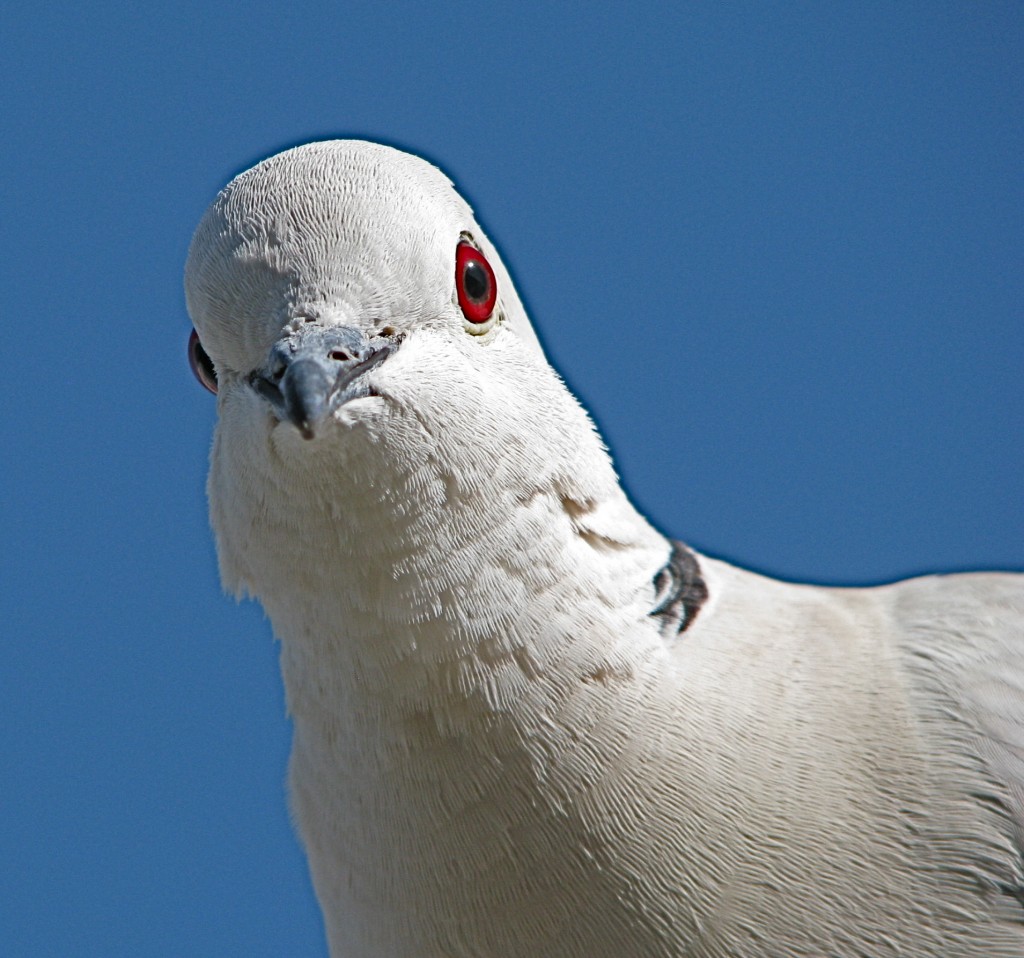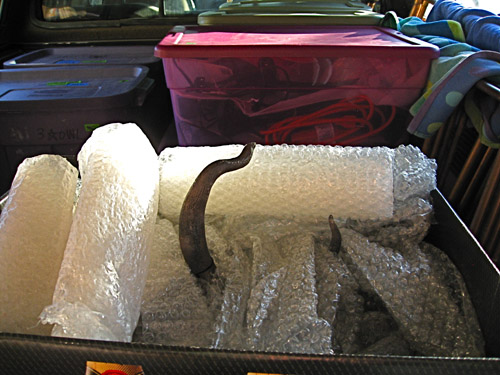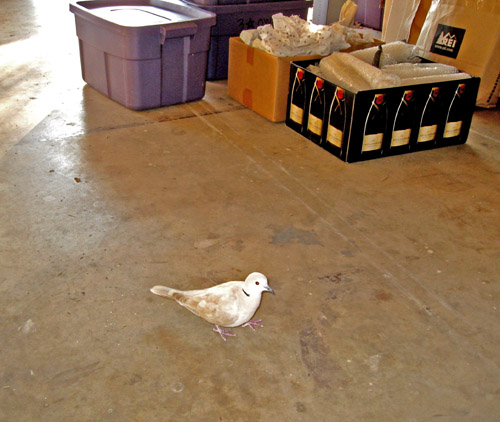The desert suburbs of Phoenix are Columbid-rich, that is, there are many species of doves and pigeons. Yesterday I was putting out seed in a neighbor’s gravel drive just before sunset. The area is quite open, and at that time of day it fills with fat, free-loading doves and pigeons who are used to being fed there and then: after only a minute, there were 30 birds chowing down, their heads bobbing up and down rapidly like sewing machine needles, almost all of them Columbids. I counted six species both native and exotic — all the species regularly seen in our neighborhood and most seen regularly in the Phoenix area at this time of year: Mourning dove, White-winged dove, Inca dove, Eurasian Collared Dove, African Collared dove, and Rock Pigeon.
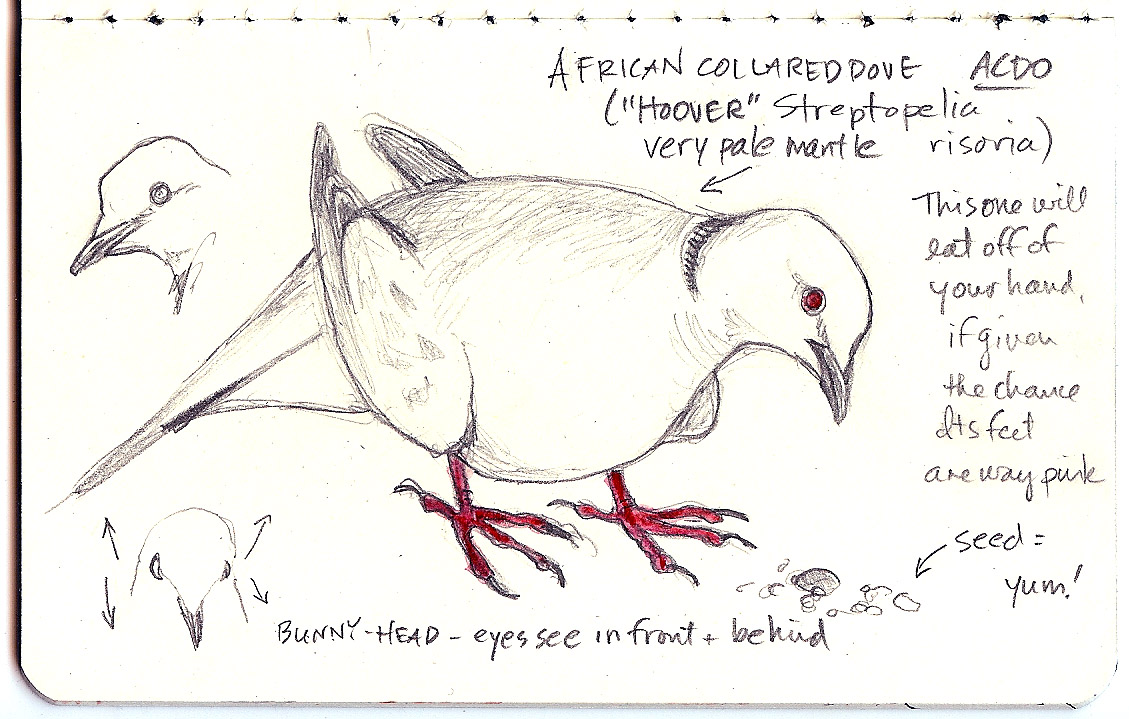 There was only one African Collared dove (Streptopelia roseogrisea). This species, like its close relative the now-abundant Eurasian Collared dove, is an exotic. But unlike the ECDO, which was introduced in one place and then spread itself across the nation, the African Collared dove (or Ringed Turtle dove) was originally released very close to here but hasn’t spread widely, even in the Phoenix area.
There was only one African Collared dove (Streptopelia roseogrisea). This species, like its close relative the now-abundant Eurasian Collared dove, is an exotic. But unlike the ECDO, which was introduced in one place and then spread itself across the nation, the African Collared dove (or Ringed Turtle dove) was originally released very close to here but hasn’t spread widely, even in the Phoenix area.
The plumage of the two exotic doves are somewhat similar: both are beige and have a black crescent on their neck. They can be hard to tell apart, until you get the hang of it. The African is a smaller, paler dove, almost white, with a gentle two-note call that sounds like the chorus from the Rolling Stones’ “Sympathy for the Devil”: “Woo-HOOooo!” The larger Eurasian is slightly darker in plumage and has a hoarse three-note call with the emphasis on the middle note: “hoo-HOO-hoo” which it utters incessantly.
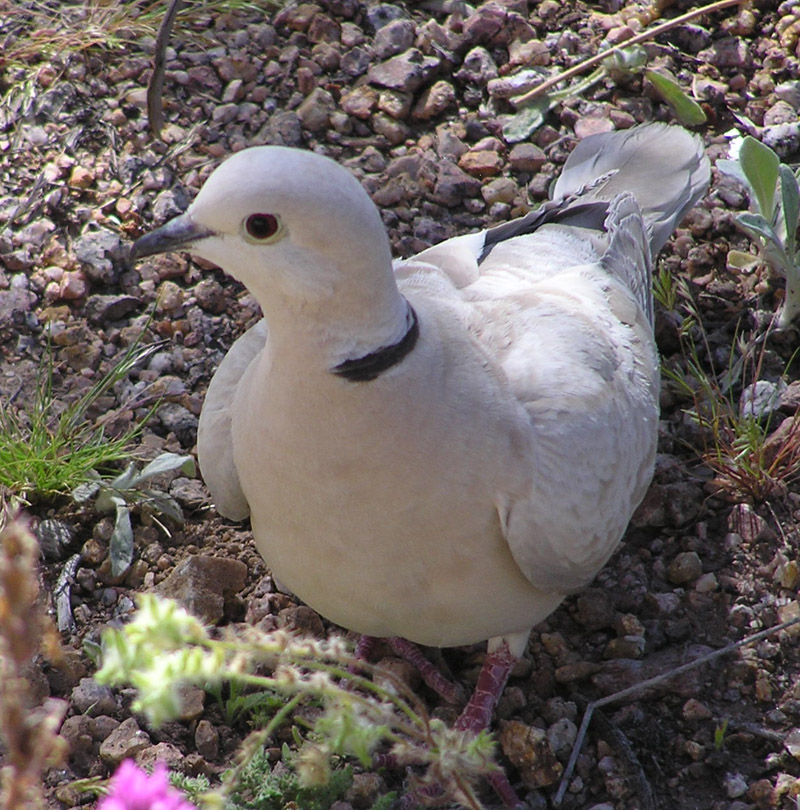 Our neighborhood hosts a small population of the daintier African Collared dove, and one of them spends most of its time mooching in our yard and our neighbor’s yard. Because of its habit of snarfing up seed rapidly, packing it into its crop and then flying off to digest at leisure, we’ve named it Hoover, like the vacuum cleaner. (Hoover used to have a mate, Eureka, but she’s not around these days). These birds are quite “sweet”: by that I mean they are not very afraid of people, unlike the other doves which all have a proper wariness towards humans. They will fly right down and land on the ground at your feet if they think seed is to be had. Not surprisingly given these behavior traits, there has been debate among ornithologists as to how domesticated this species (or variety) of dove is, but currently it’s enjoying full species status.
Our neighborhood hosts a small population of the daintier African Collared dove, and one of them spends most of its time mooching in our yard and our neighbor’s yard. Because of its habit of snarfing up seed rapidly, packing it into its crop and then flying off to digest at leisure, we’ve named it Hoover, like the vacuum cleaner. (Hoover used to have a mate, Eureka, but she’s not around these days). These birds are quite “sweet”: by that I mean they are not very afraid of people, unlike the other doves which all have a proper wariness towards humans. They will fly right down and land on the ground at your feet if they think seed is to be had. Not surprisingly given these behavior traits, there has been debate among ornithologists as to how domesticated this species (or variety) of dove is, but currently it’s enjoying full species status.
(Images of ACDOs: sketchbook pencil sketch and photo, A.Shock.)
